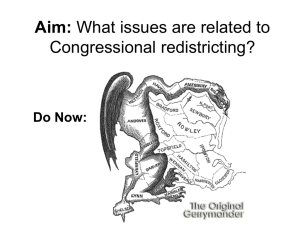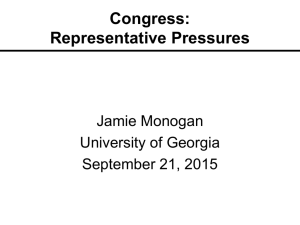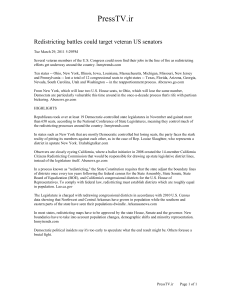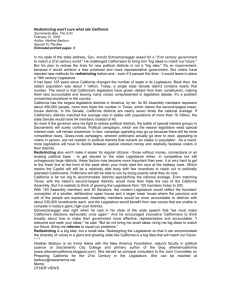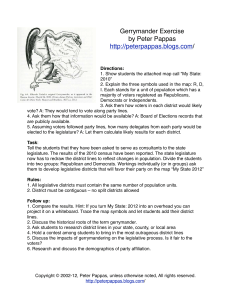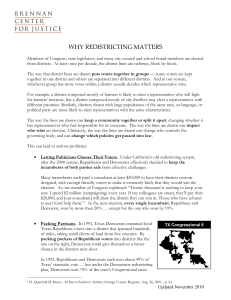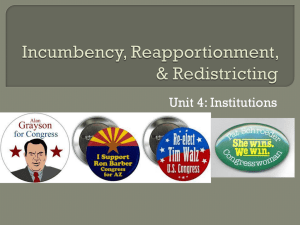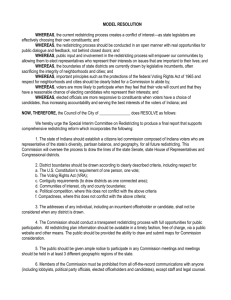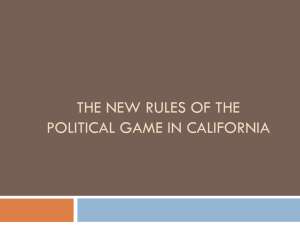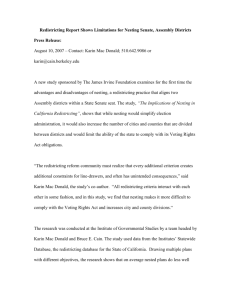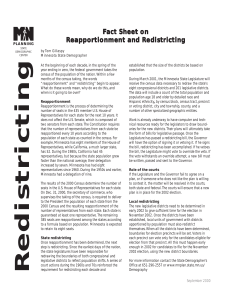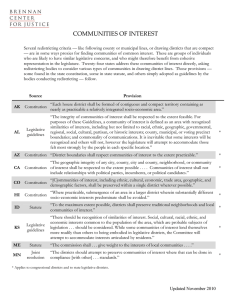AN EVEN WORSE REDISTRICTING PLAN
advertisement
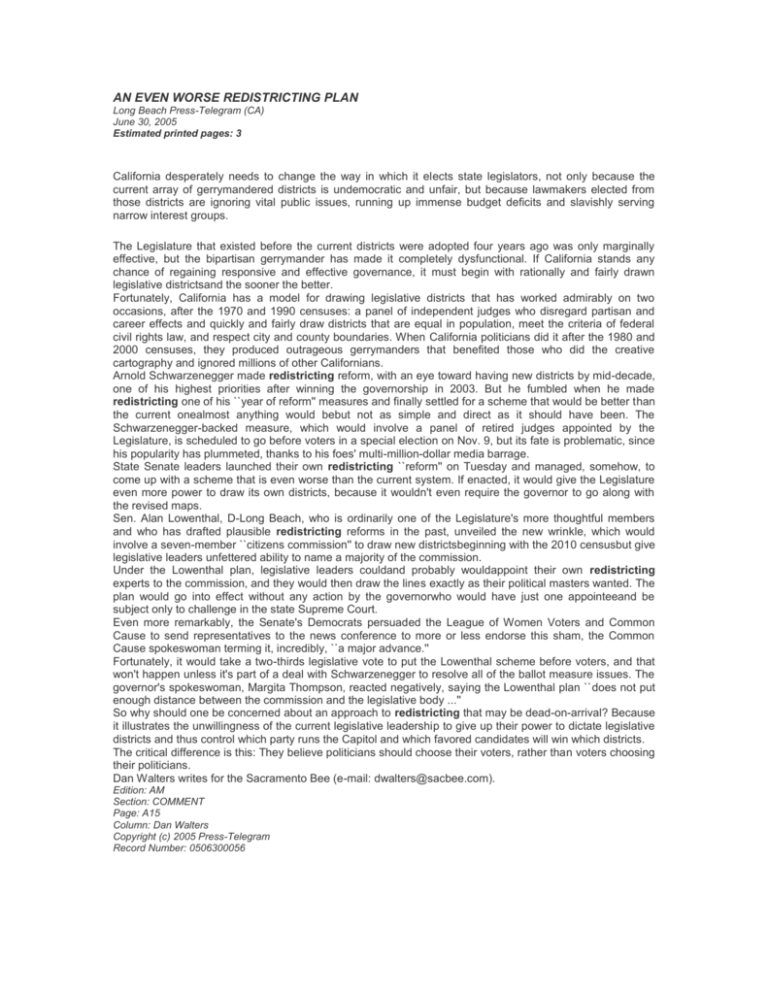
AN EVEN WORSE REDISTRICTING PLAN Long Beach Press-Telegram (CA) June 30, 2005 Estimated printed pages: 3 California desperately needs to change the way in which it elects state legislators, not only because the current array of gerrymandered districts is undemocratic and unfair, but because lawmakers elected from those districts are ignoring vital public issues, running up immense budget deficits and slavishly serving narrow interest groups. The Legislature that existed before the current districts were adopted four years ago was only marginally effective, but the bipartisan gerrymander has made it completely dysfunctional. If California stands any chance of regaining responsive and effective governance, it must begin with rationally and fairly drawn legislative districtsand the sooner the better. Fortunately, California has a model for drawing legislative districts that has worked admirably on two occasions, after the 1970 and 1990 censuses: a panel of independent judges who disregard partisan and career effects and quickly and fairly draw districts that are equal in population, meet the criteria of federal civil rights law, and respect city and county boundaries. When California politicians did it after the 1980 and 2000 censuses, they produced outrageous gerrymanders that benefited those who did the creative cartography and ignored millions of other Californians. Arnold Schwarzenegger made redistricting reform, with an eye toward having new districts by mid-decade, one of his highest priorities after winning the governorship in 2003. But he fumbled when he made redistricting one of his ``year of reform'' measures and finally settled for a scheme that would be better than the current onealmost anything would bebut not as simple and direct as it should have been. The Schwarzenegger-backed measure, which would involve a panel of retired judges appointed by the Legislature, is scheduled to go before voters in a special election on Nov. 9, but its fate is problematic, since his popularity has plummeted, thanks to his foes' multi-million-dollar media barrage. State Senate leaders launched their own redistricting ``reform'' on Tuesday and managed, somehow, to come up with a scheme that is even worse than the current system. If enacted, it would give the Legislature even more power to draw its own districts, because it wouldn't even require the governor to go along with the revised maps. Sen. Alan Lowenthal, D-Long Beach, who is ordinarily one of the Legislature's more thoughtful members and who has drafted plausible redistricting reforms in the past, unveiled the new wrinkle, which would involve a seven-member ``citizens commission'' to draw new districtsbeginning with the 2010 censusbut give legislative leaders unfettered ability to name a majority of the commission. Under the Lowenthal plan, legislative leaders couldand probably wouldappoint their own redistricting experts to the commission, and they would then draw the lines exactly as their political masters wanted. The plan would go into effect without any action by the governorwho would have just one appointeeand be subject only to challenge in the state Supreme Court. Even more remarkably, the Senate's Democrats persuaded the League of Women Voters and Common Cause to send representatives to the news conference to more or less endorse this sham, the Common Cause spokeswoman terming it, incredibly, ``a major advance.'' Fortunately, it would take a two-thirds legislative vote to put the Lowenthal scheme before voters, and that won't happen unless it's part of a deal with Schwarzenegger to resolve all of the ballot measure issues. The governor's spokeswoman, Margita Thompson, reacted negatively, saying the Lowenthal plan ``does not put enough distance between the commission and the legislative body ...'' So why should one be concerned about an approach to redistricting that may be dead-on-arrival? Because it illustrates the unwillingness of the current legislative leadership to give up their power to dictate legislative districts and thus control which party runs the Capitol and which favored candidates will win which districts. The critical difference is this: They believe politicians should choose their voters, rather than voters choosing their politicians. Dan Walters writes for the Sacramento Bee (e-mail: dwalters@sacbee.com). Edition: AM Section: COMMENT Page: A15 Column: Dan Walters Copyright (c) 2005 Press-Telegram Record Number: 0506300056
